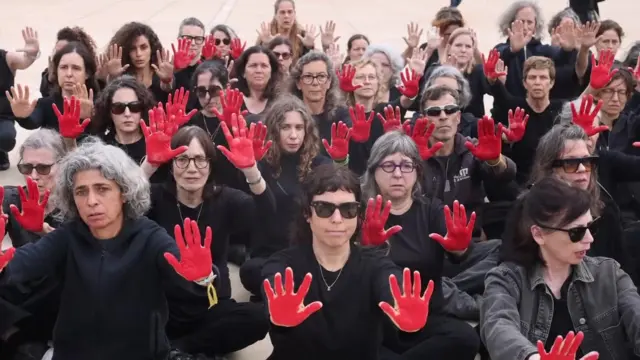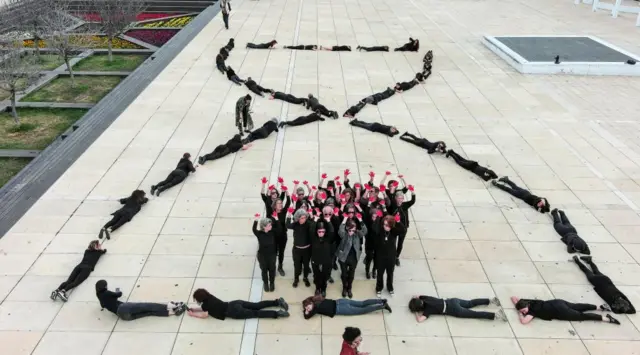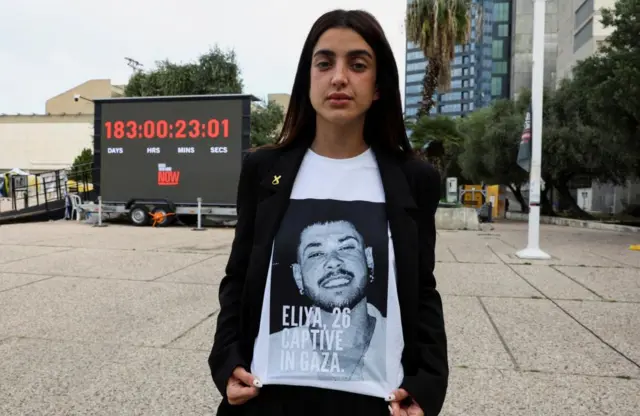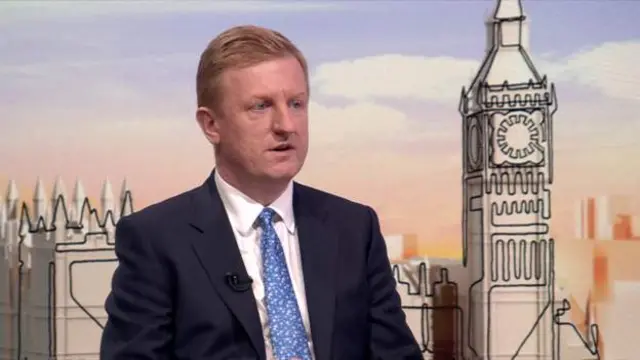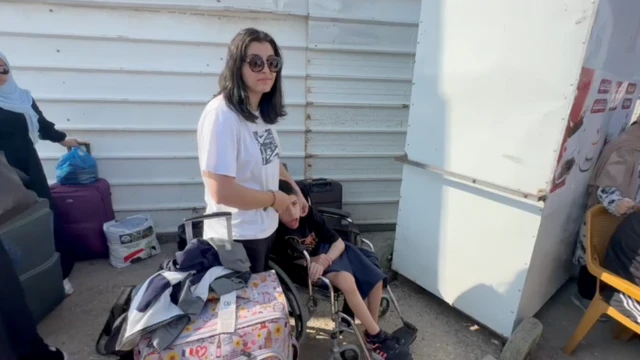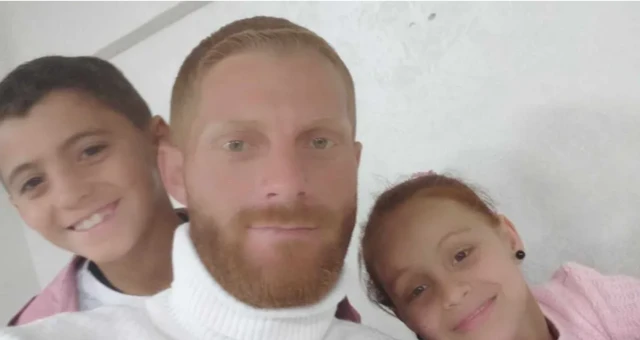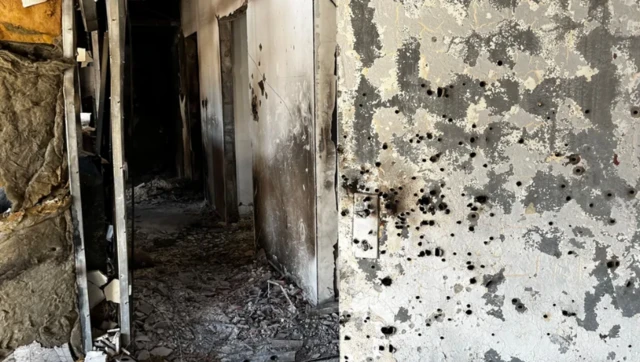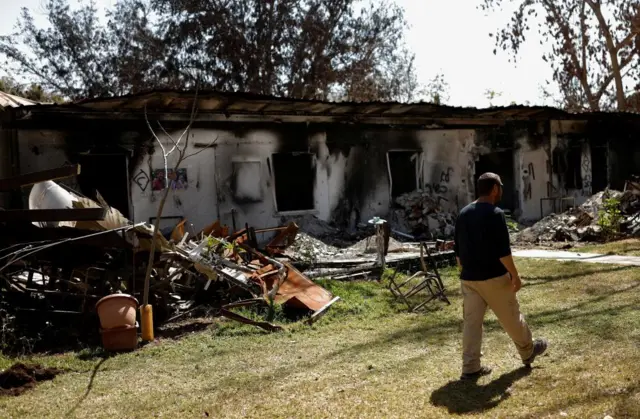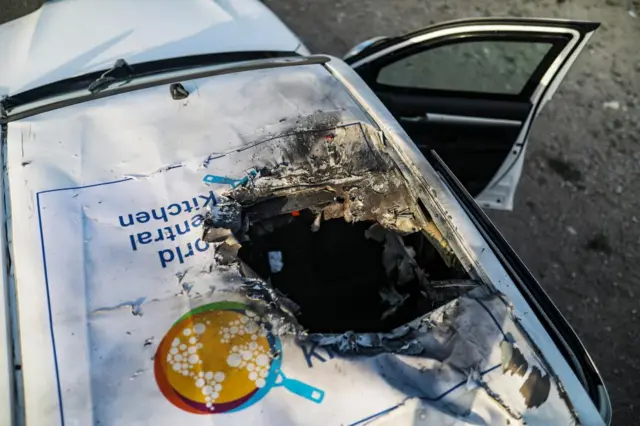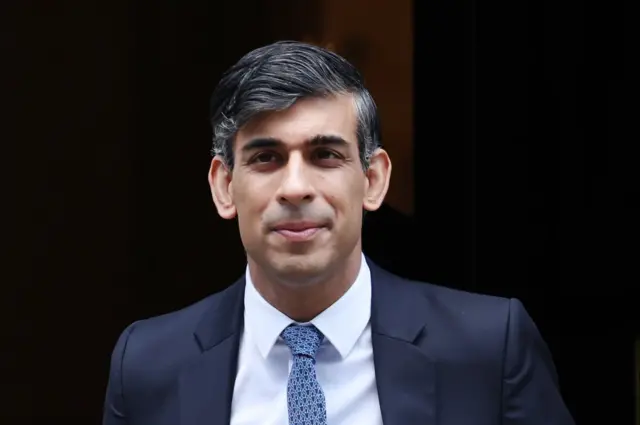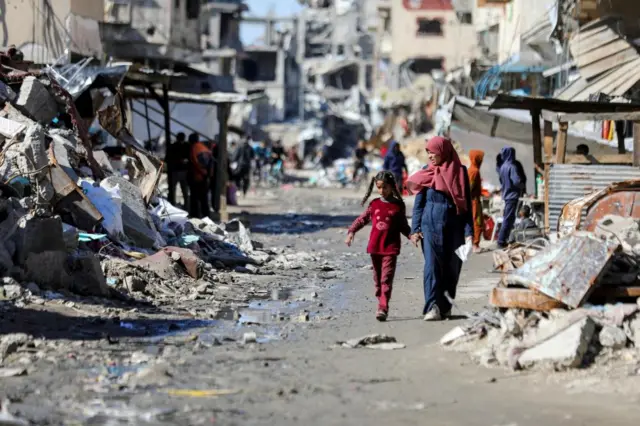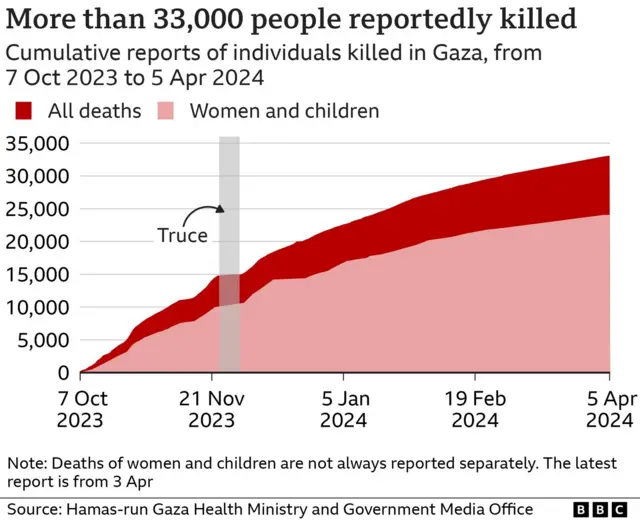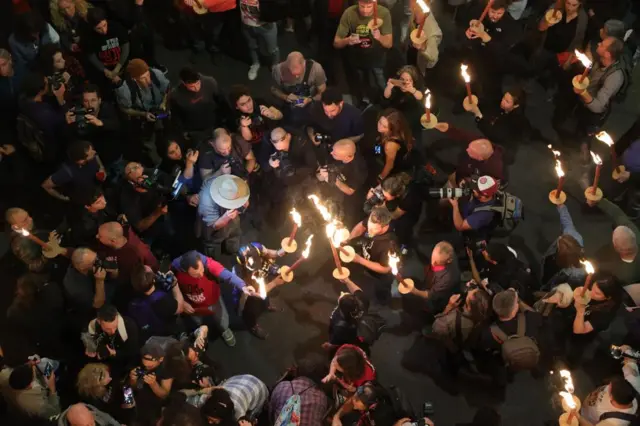Hostage's relative doesn't know if she is 'dead or alive'published at 10:11 BST 7 April 2024
Our colleagues on Radio 5 Live have been hearing from Gil Dickmann this morning. His aunt was killed by Hamas in the 7 October attacks and his cousin, Carmel Gat, is among the hostages still held in Gaza.
He says he does not want to see "blood or revenge" in Gaza, adding that he wants Israeli troops "to bring back life to Israel, to bring back the hostages".
He says he thinks a ceasefire is possible but that Israel "can't agree to a ceasefire without bringing the hostages back because that will mean we will never see them again".
Speaking about his cousin, he says: “It has been 150 days since [Carmel was taken], or even more, and we don’t really know whether she is above the ground or underground.
"Whether she is alone or with other hostages. We don’t even know if she’s dead or alive.”
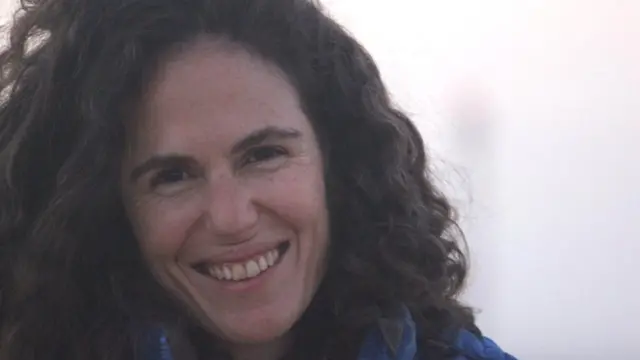
Carmel Gat was visiting her parents when she was taken
